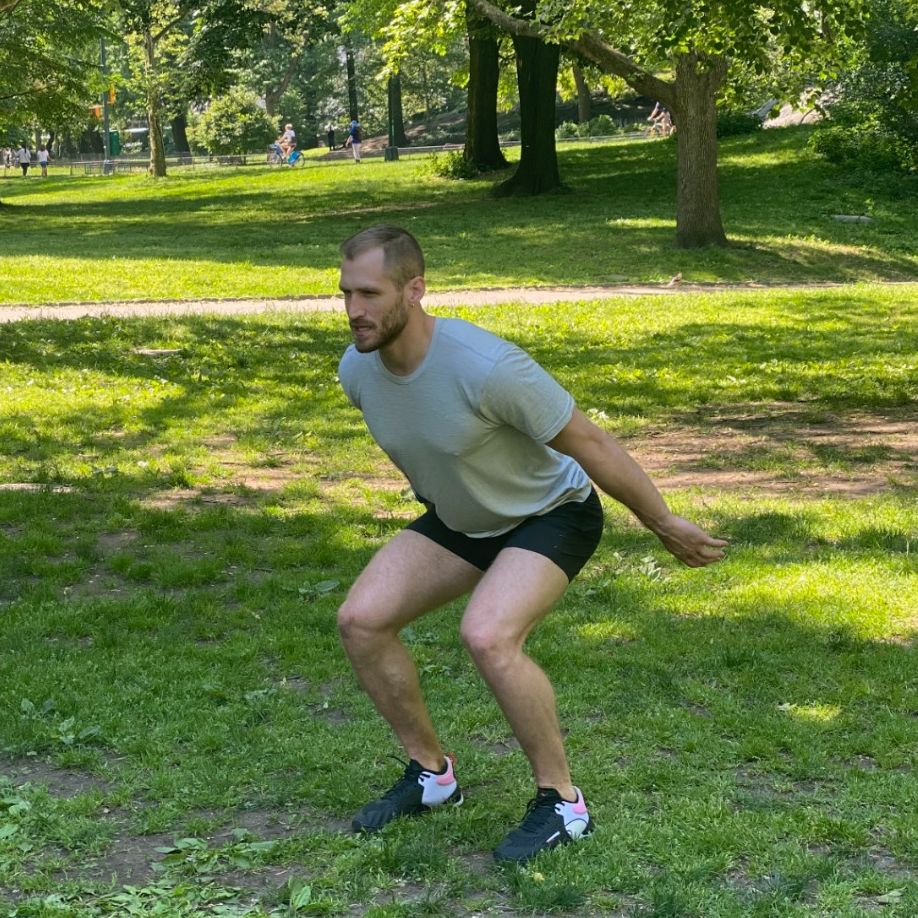
Bored with your stale bodyweight workouts? Are rounds of air squats not quite cutting it for you anymore? Switch up your routine with these jump squats.
However, jump squats aren’t as simple as adding a pogo bounce to your squat game. You’ll need to be more focused on your form and tempo to get the most out of the move, especially if you’re hoping to train for power and achieve full triple-extension of the ankle, knee, and hip, and not just hop up and down in place.
“The key to the jump squat is doing it correctly, because there’s one super common mistake that everyone gets wrong,” says Men’s Health fitness director Ebenezer Samuel, C.S.C.S. “We’re going to clean up that mistake and show you how to execute the jump squat so you can get more athletic, still get that heart rate up, and get plenty of training effect out of it.”
Here, Samuel and MH fitness editor Brett Williams, NASM walk though the notes you should keep in mind anytime you bring jump squats into your workout.
You’ll be able to add a totally new dimension to your bodyweight training with the move, so make sure to pay attention.
How to Do a Jump Squat
Throw Your Hands
Use your hands to “load” your body so that you can create power to explode upward out of the squat. That means when you’re in the lowest point of your squat, your hands should be behind you—a departure from air squats, where you can keep your hands in front to help with balance.
Stick the Landing
After you jump, make sure to bend your knees on the landing, too. This will help you to land safely without jarring your joints while also prepping you for your next rep if you’re performing multiple reps.
Jump Squat Mistakes to Avoid
Don’t Stand Straight Up
One common mistake people make is keeping their torso in a stiff upright position, as if they’re continuing their squat into the air. Instead, “think of this as a hybrid between a hinge and a squat,” suggests Samuel. Rather than aiming for a parallel (or deeper) squat depth, descend to a position where your butt is just higher than your knees. In this position, you’ll lean forward more than you would in a regular squat. From there, just focus on the jump.
Don’t Rush Your Reps
This is a jump squat that’s meant to be powerful and explosive, not speedy to simply ramp up your heart rate. If you run through your reps super quickly and use your arms in the opposite way as advised above, you’ll leave potential athletic gains on the table. Focus on exploding up, take a beat to reset, then explode just as high on the next rep.